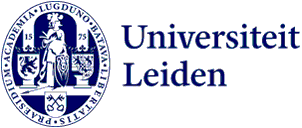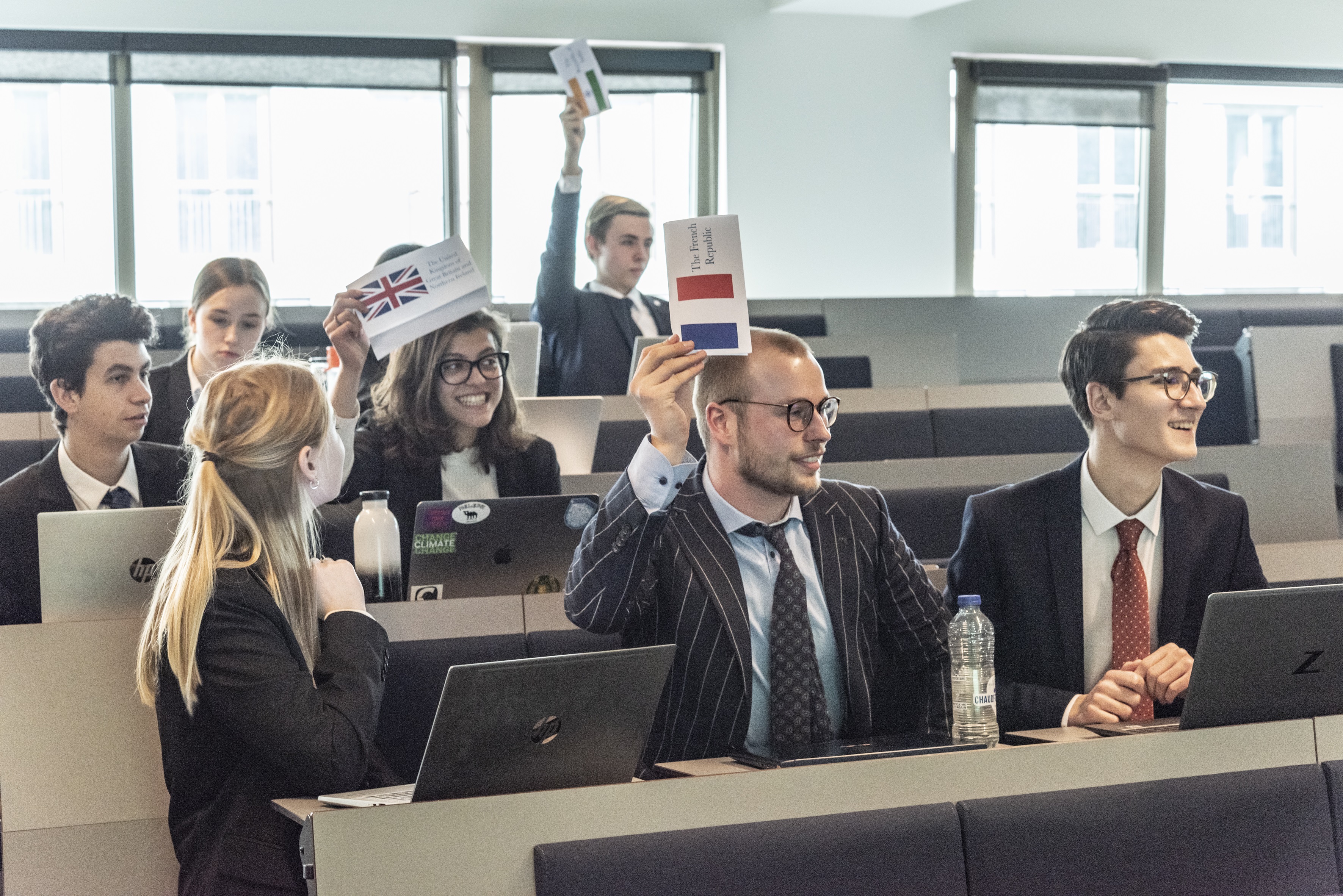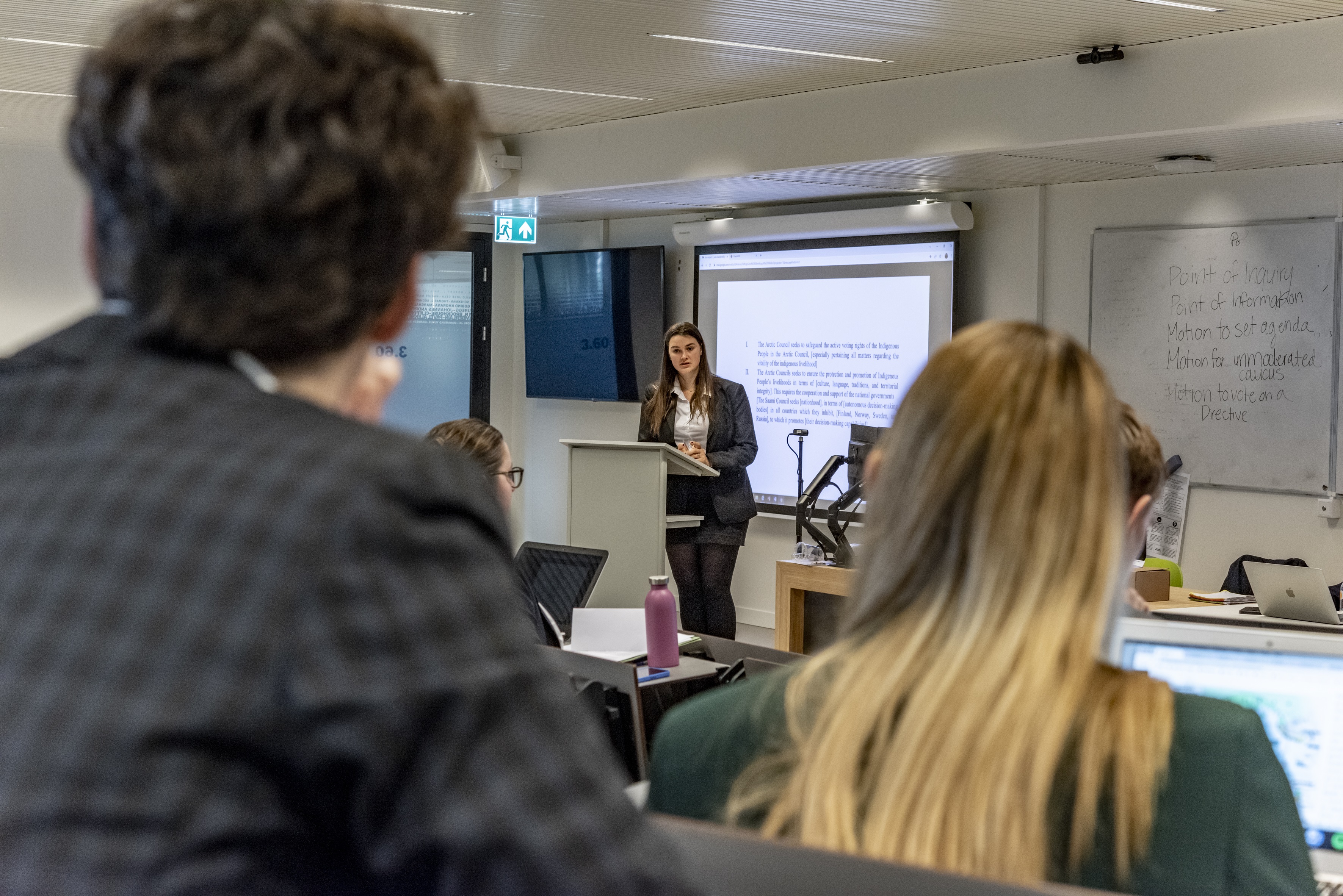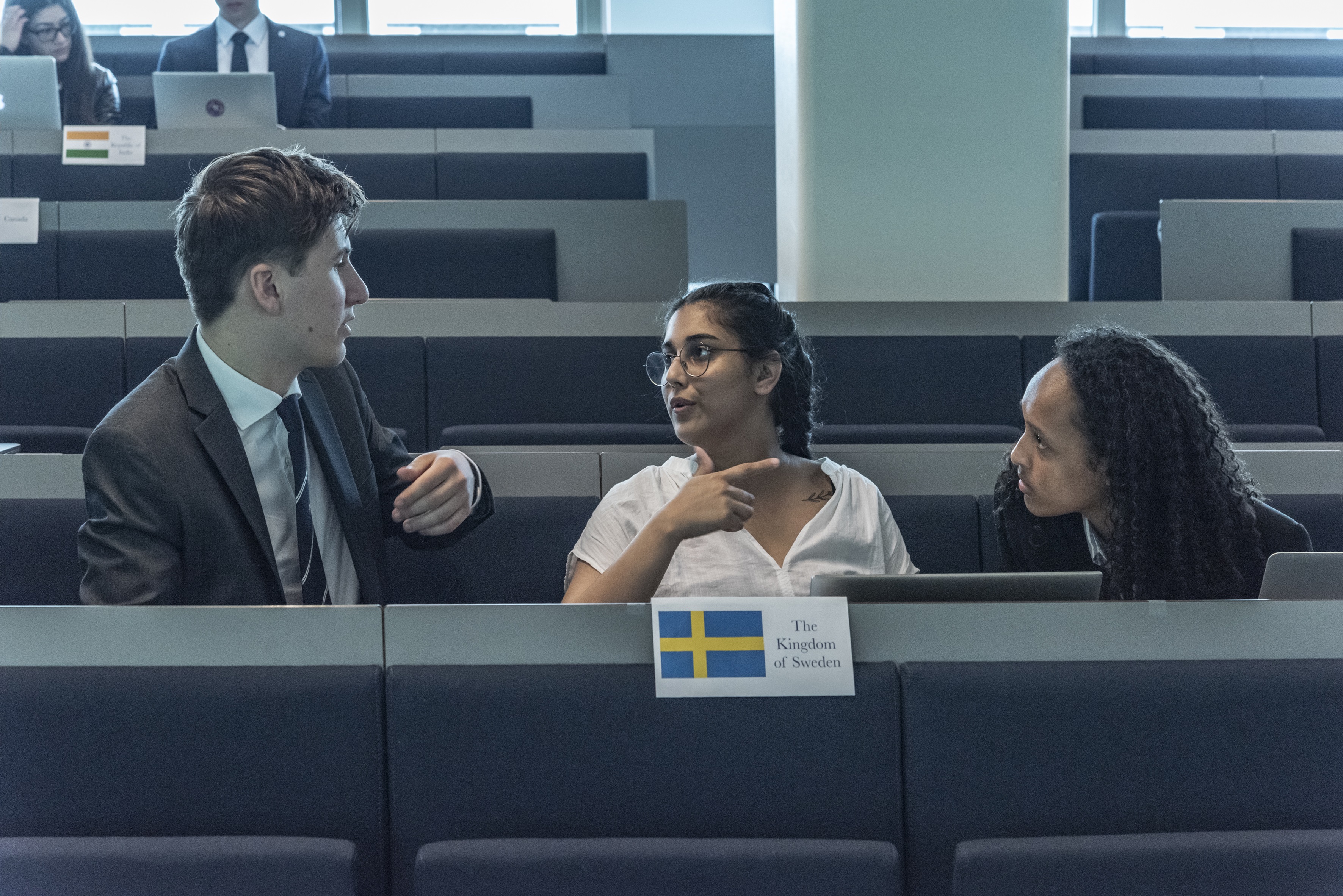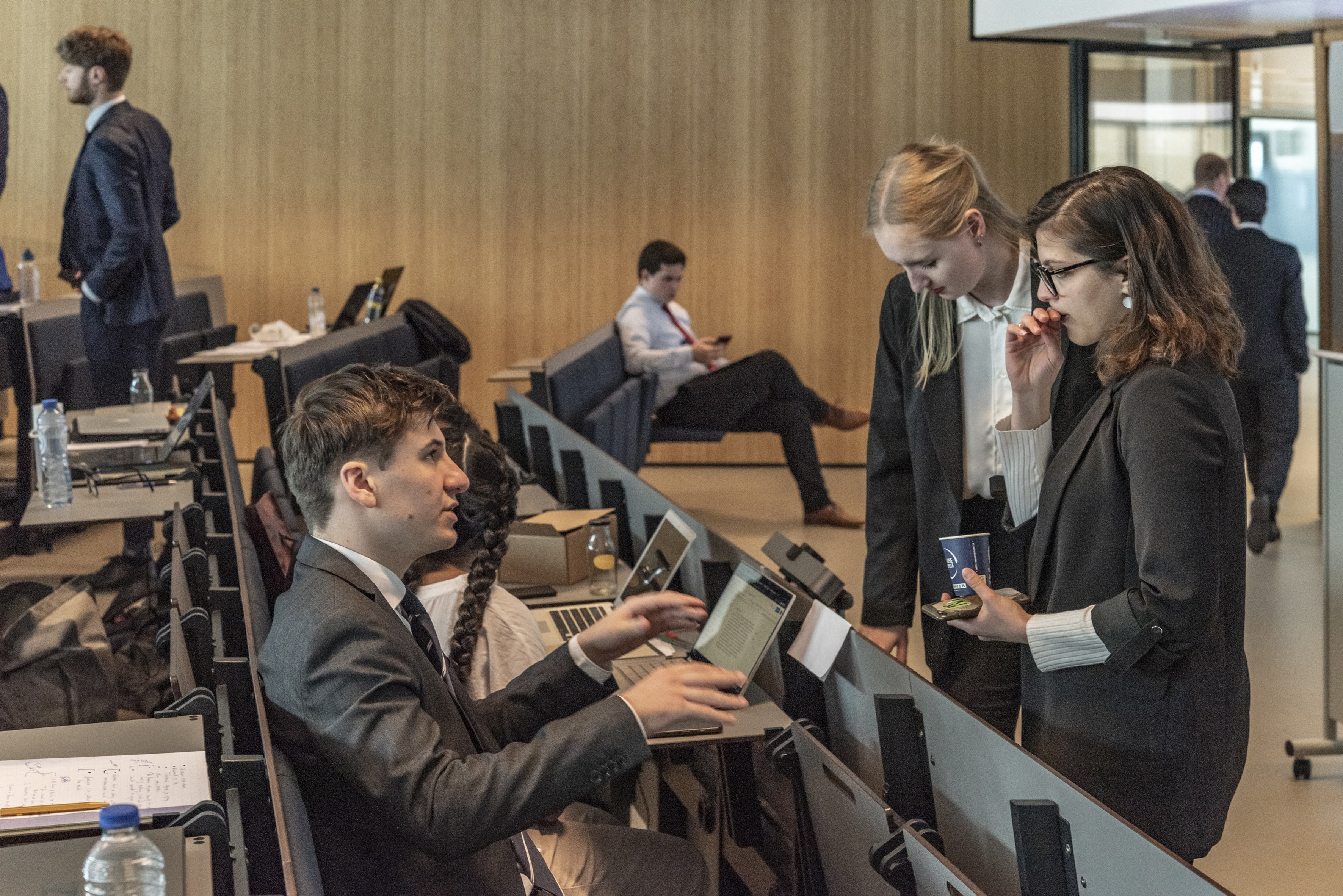
Young Diplomat Conference: ‘Alliances are forged over lunch’
The year is 2032 and the Arctic ice cap has melted causing new trade routes to emerge. This case is the focal point of the Young Diplomat Conference during which honours participants spend a weekend as diplomats solving disputes between countries.
Dressed in nice suits and dresses, the students passionately defend their country's interests in the United Nations and Arctic Council. Hans van den Berg of The Young Diplomat describes how the delegations were already heatedly negotiating with each other during the run-up to the conference. 'Just like in the real world, a preliminary consensus is reached behind the scenes. These conferences exist to reach a final agreement.'
Heated debates
The conference was the closing session of the International Relations: Negotiation and Diplomacy course, in which the students of the Honours College Governance and Global Affairs were taught the ins en outs of diplomatic negotiation.

This year the course has a different set-up that allowes for 'a larger group of students than before', explains honours coordinator Anette Righolt. 'In this instance 65 instead of the usual 15 to 20 students.' Without a group of that size, it would have been impossible to organise a conference like today's.
The students take advantage of the opportunity and put their best diplomatic foot forward, which leads to heated debates. Even so, most of the decisions are no made during the official debates. History student Naud: 'The informal dimension is very important. Deals are made and alliances are forged in hallways and over lunch.'
Etiquette crash course
To make everything even more real, journalists are present during the conference to bombard the delegations with questions. Furthermore, students themselves can make media statements to influence the political game. A diplomat must keep an eye on everything at all times, says International Studies student Mara. 'During a debate, the delegations are whispering amongst themselves, new deals are made in the hallways, and the press might release news with far-reaching consequences. To make the right decision, you need to consider everything.'
What is a conference without a conference dinner? However, before the honours participants can dig in, they get an etiquette crash course. Public Administration student Xander now knows exactly how to properly ask to be passed the salt. 'Leaning over someone else is a no-go. You should ask if the person in question wants more salt, after which they will offer it to you.'
Postponing the vote
On the second day of the conference, Van den Berg notices that the delegations become increasingly more stategic. 'In the Arctic Counsil you can see students contemplate how to postpone the vote, while others would benefit more from an expedited vote. Students are considering how they can influence the outcome themselves.'
The most important thing Mara learned about negotiating is to always be open to alternatives. 'A goal that seems important at first can be swapped for a better option you might not have considered beforehand. Therefore, it is paramount to keep listening to other opinions without dismissing them too quickly. This will often work out in your favour.' She takes a moment to think and smiles: 'Actually, this applies to life just like it does to diplomacy.'
Text: Sarawitia Franken
Photos: Buro JP

